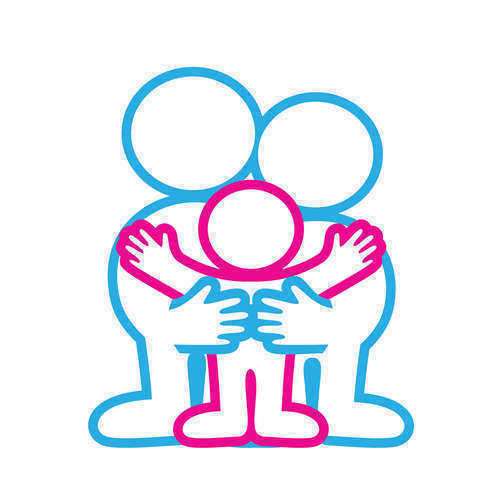Unveiling the Hidden Truth: Shocking Adoption Regulations Exposed

In recent years, the complexities surrounding adoption regulations have come under scrutiny, revealing a myriad of challenges that both prospective parents and vulnerable children face. As society evolves, so too must the frameworks that govern the adoption process. This article aims to unveil the hidden truths behind adoption regulations, exploring their impact, the barriers they create, and the urgent need for reform.
Understanding Adoption Regulations: A Comprehensive Overview of Current Practices
Adoption regulations vary significantly across different jurisdictions, reflecting a patchwork of laws that can often be confusing and inconsistent. In many countries, the adoption process is governed by a combination of federal, state, and local laws, each with its own set of requirements and procedures. These regulations are designed to ensure the welfare of children and to protect the rights of biological parents, but they can also create significant hurdles for prospective adoptive families. Key aspects of these regulations include background checks, home studies, and mandatory training sessions, all of which aim to assess the suitability of adoptive parents. However, the complexity and variability of these regulations can deter many families from pursuing adoption altogether.
The Impact of Strict Adoption Laws on Vulnerable Children and Prospective Parents
Strict adoption laws, while intended to safeguard children, often have unintended consequences that adversely affect both vulnerable children and prospective parents. For children in foster care or orphanages, lengthy and convoluted adoption processes can lead to prolonged instability and uncertainty. Many children age out of the system without ever finding a permanent home, which can have lasting effects on their emotional and psychological well-being. For prospective parents, the rigorous requirements can create a sense of frustration and hopelessness. Many families who wish to adopt may find themselves disqualified due to minor infractions or financial constraints, ultimately depriving children of loving homes and families.
Hidden Barriers: Exploring the Challenges Faced by Adoptive Families Today
Adoptive families today encounter numerous hidden barriers that complicate their journey. Financial constraints are a significant challenge, as the costs associated with adoption—such as legal fees, agency fees, and travel expenses—can be prohibitively high. Additionally, the emotional toll of navigating the adoption process can be overwhelming. Many families report feeling isolated and unsupported, as the stigma surrounding adoption can lead to societal misunderstanding and judgment. Furthermore, cultural and racial biases within the adoption system can create additional obstacles, particularly for families adopting children from different backgrounds. These barriers not only hinder the adoption process but also contribute to the emotional strain experienced by families seeking to provide a loving home.
Uncovering the Truth: Investigating the Transparency of Adoption Processes
Transparency in adoption processes is crucial for building trust among all parties involved. However, many prospective parents report a lack of clarity regarding the steps involved in adoption and the criteria used to evaluate their applications. This opacity can lead to feelings of confusion and frustration, as families are often left in the dark about the status of their applications or the reasons for delays. Moreover, the lack of standardized practices across jurisdictions can exacerbate these issues, as families may find themselves navigating a maze of differing regulations and expectations. Investigating the transparency of these processes is essential to ensure that all stakeholders are informed and that the best interests of children are prioritized.
Case Studies: Real-Life Experiences Highlighting Flaws in Adoption Regulations
Real-life experiences shed light on the flaws inherent in current adoption regulations. For instance, a couple from California faced a lengthy and arduous process that included multiple home studies and background checks, only to be denied adoption due to a minor legal issue from their past. This experience not only delayed their dream of becoming parents but also left them feeling disheartened and stigmatized. Similarly, a single mother in New York encountered significant barriers when attempting to adopt a child from the foster care system. Despite her stable income and loving environment, she was repeatedly overlooked in favor of married couples, highlighting the biases that can exist within the system. These case studies illustrate the urgent need for reform and the importance of creating a more equitable and accessible adoption process.
Advocating for Change: Proposed Reforms to Improve Adoption Policies and Practices
Advocating for change in adoption policies is essential to address the systemic issues that hinder the adoption process. Proposed reforms include streamlining the application process to reduce unnecessary delays, increasing financial support for adoptive families, and implementing standardized training programs for social workers and adoption agencies. Additionally, enhancing transparency in the adoption process can empower prospective parents and ensure that they are informed at every step. Advocacy groups are also calling for the elimination of discriminatory practices that favor certain family structures over others, promoting a more inclusive approach to adoption. By implementing these reforms, society can work towards a more equitable adoption system that prioritizes the well-being of children and supports families in their journey to provide loving homes.
The complexities of adoption regulations reveal a landscape fraught with challenges for both children and prospective parents. As we uncover the hidden truths behind these regulations, it becomes clear that reform is not only necessary but urgent. By advocating for change and fostering a more transparent and equitable adoption process, we can ensure that every child has the opportunity to find a loving home and that families are supported in their quest to provide that home. The time for action is now, as we strive to create a future where adoption is accessible, fair, and focused on the best interests of children.












